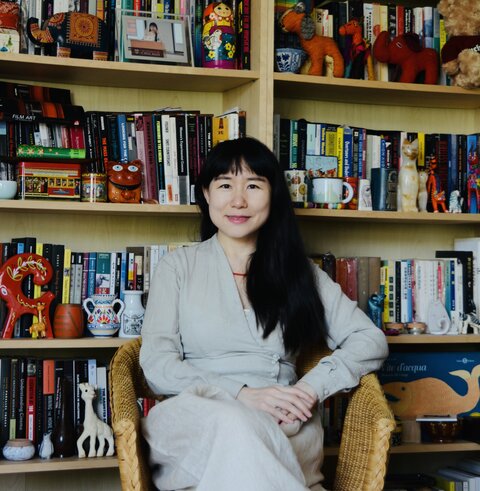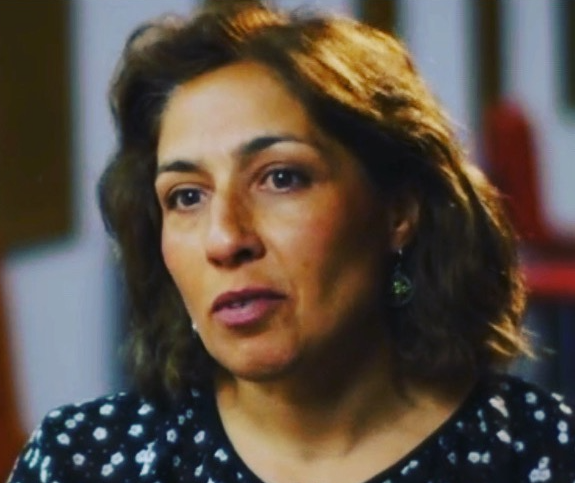Ling Zhang


Ling Zhang est professeure associée d'études cinématographiques à l'université d'État de New York Purchase College et chercheuse à l'Institut international d'études asiatiques de l'université de Leiden (2024-25). Elle est titulaire d'un doctorat en études cinématographiques et médiatiques de l'université de Chicago. Ses projets de livres actuels explorent les paysages sonores transnationaux du cinéma chinois et la circulation des médias pendant la guerre froide. Elle est coéditrice de The Politics of the Soundtrack and Socializing Medicine: Health Humanities and East Asian Media (2025). Ses recherches ont été publiées dans Journal of Cinema and Media Studies, Film Quarterly, Journal of Popular Culture, Comparative Cinema, entre autres.
Le projet
Titre et résumé en anglais : Sounding Wayward Journeys: Traveling Film and Media in China and the World, 1949-1989
« In his autobiography, Malcolm X recounts a 1964 visit to Ghana, where he attended a dinner hosted by Chinese Ambassador Huang Hua. The event featured films from China and Algeria celebrating socialist achievements, Black liberation, and anti-colonial resistance. These screening illuminate a vital yet understudied phenomenon: the circulation of film and media as vehicles of political imagination and cultural diplomacy during the Cold War. “Sounding Wayward Journeys: Traveling Film and Media in China and the World, 1949-1989,” my second book project, explores the transcultural itineraries of sound and image across socialist China and the Global South. Through a sound studies lens, it examines how travel-themed films, radical broadcasts, dubbed foreign cinema, and musical recordings facilitated “people’s diplomacy” in a world divided by ideology but bound by media flows. Focusing on media encounters between China, Africa, Southeast Asia, and Latin America, the book traces how sonic infrastructures—dubbing studios, radio networks, phonograph industries—amplified resonances across Cold War divides. It foregrounds voices such as Paul Robeson, Shirley MacLaine, Claudia Weill, Joris Ivens, Chris Marker, Ousmane Sembène, Alejandro Galindo, and José Venturelli to reveal unexpected solidarities and routes of exchange. The book reimagines media history as a constellation of alternative flows, political aspirations, and global connections beyond capitalist paradigms ».
Institution d'accueil : Fondation Maison des Sciences de l'Homme (FMSH)
Bibliographie sélective
- Co-editor (with Pao-chen Tang and Yuqian Yan), Socializing Medicine: Health Humanities and East Asian Media (Hong Kong University Press, 2025)
- “A scratch Embellishing an Empty Face: ‘Shamate’ Subculture and Chinese Migrant Workers in We Were Smart (2019),” The South Atlantic Quarterly (forthcoming in October 2025)
- “Sound Shimmers, Luminosity in the Darkness: Ear-witnessing Cold War Paranoia in Edward Yang’s A Brighter Summer Day (1991),” JCMS: Journal of Cinema and Media Studies, Volume 61, Issue 4, Summer 2022, 132-156.
- “From ‘Mystification’ to ‘Massification’: Canton Counterespionage Films and Cold War Geopolitics,” The Journal of Popular Culture, Vol. 54, No.6, 1309-1330, 2021
- “Foreshadowing the Future of Capitalism: Surveillance Technology and Digital Realism in Xu Bing’s Dragonfly Eyes (2017),” Comparative Cinema, Vol. VIII, No. 14, 62-81, 2020.

Plus d'informations sur : Academia.edu - Compte X - Bluesky



Nancy Jones

Arezou Azad

Carla Rita Palmerino


